Mobile apps are now one of the most capable means to interact with customers globally. They are user friendly, cost-efficient, and secure for both businesses and users. However, it is business critical to select the right programming language for your mobile app that is scalable, easy to implement, and futuristic.
You have the option of several programming languages through which you can create a mobile app for your business. However, only some of them can help achieve what you really need. Here, we have collated the list of top programming languages that you can leverage for your mobile app development.
1. Flutter
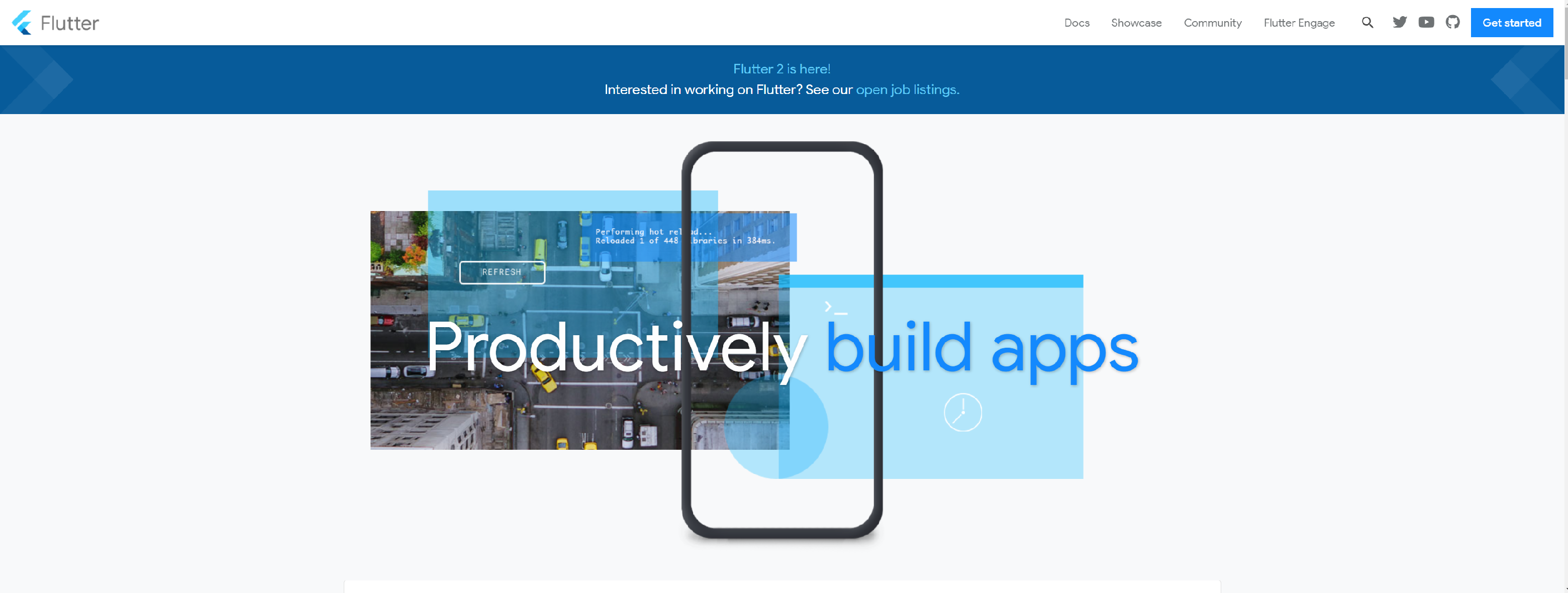
Flutter was developed as a mobile app SDK by Google. It is a quick and easy way to render high-performance mobile apps with easier deployment on both Android and iOS. Basically, it is an application development framework that uses Dart – a coding language. It comes packed with a huge library of widgets and tools to help developers build a highly immersive app experience with visual elements. All its widgets are customisable to help you deliver branded experience.
With the help of its rich widgets, you can easily build a cross platform app that is at part with native applications in terms of performance. You can reuse codes on both Android and iOS platforms. With the help of a few UI elements, you can easily develop a fully-functional cross platform app.
Its Hot Reload feature notices all the changes executed in real-time. This works wonders when you need to deploy changes to any part of the mobile app. You can achieve it easily by just tweaking the code and the changes will reflect in real-time. The same and smaller code-base of both iOS and Android also helps in reducing the mobile app testing time.
2. React Native
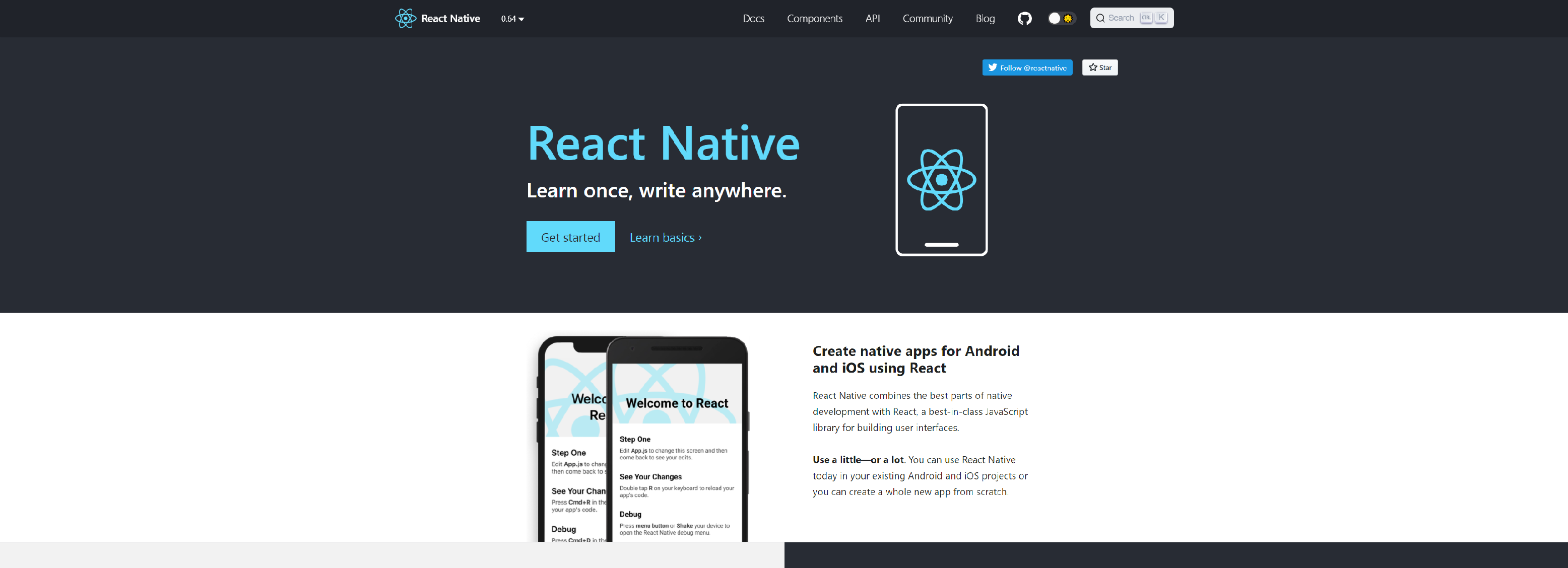
Facebook rolled out React Native as its international hackathon project. However, ever since, it has evolved as one of the most efficient coding languages to develop cross platform mobile apps. Hence, you can leverage React Native to build a hybrid app that would work on both iOS and Android. It can help in significantly reducing the cost and development task.
React Native is being widely used by developers to develop major league apps including Uber, Facebook, Skype, Airbnb, and more. It helps developers of mobile apps to write a code section that can be reused on different other platforms. After you deploy the code, it can easily adapt to multiple platforms including detailing and stylized elements. You can also leverage its pre-built components available in the open-source library. It helps in expediting app development by using pre-developed components uploaded in the library.
React Native offers a simple implementation order and user interface (UI). It can help you deliver a faster, more responsive, quicker to load, and smoother to use mobile application. It is also equipped with multiple supporting libraries, third-party plugins, and more to enable you to instantly add new features. It also offers a host of other capabilities including decorative coding style, hot and live reloading, modular architecture, and more.
You can also leverage its reliable and responsive community support coupled with flawless documentation.
3. Java
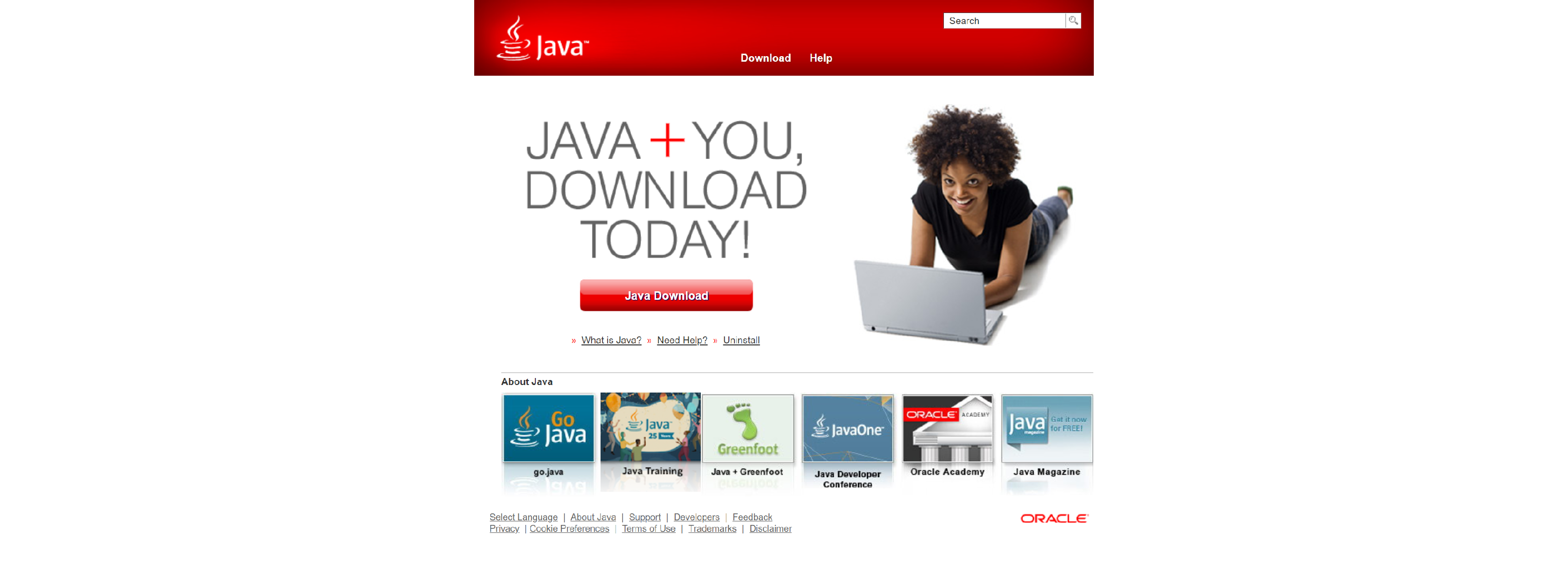
Java is arguably one of the most recognized programming languages among mobile application developers all over the world. You can easily learn it and instantly start coding to build a mobile app. It also comes with a reliable community support to help new developers work without any hassles.
Some of the great examples of mobile apps built on Java include Spotify and Twitter. On top of that, Android OS is also built by using Java. Its Syntax is more readable and easy to understand than other coding languages including Python. Java is an Object-Oriented coding language and hence, it is more capable to handle complexities of applications working in the real world. It offers a rich API for reliable integration. Now it is also a strongly typed language, hence, there are lesser chances of mistakes by new developers.
4. Swift
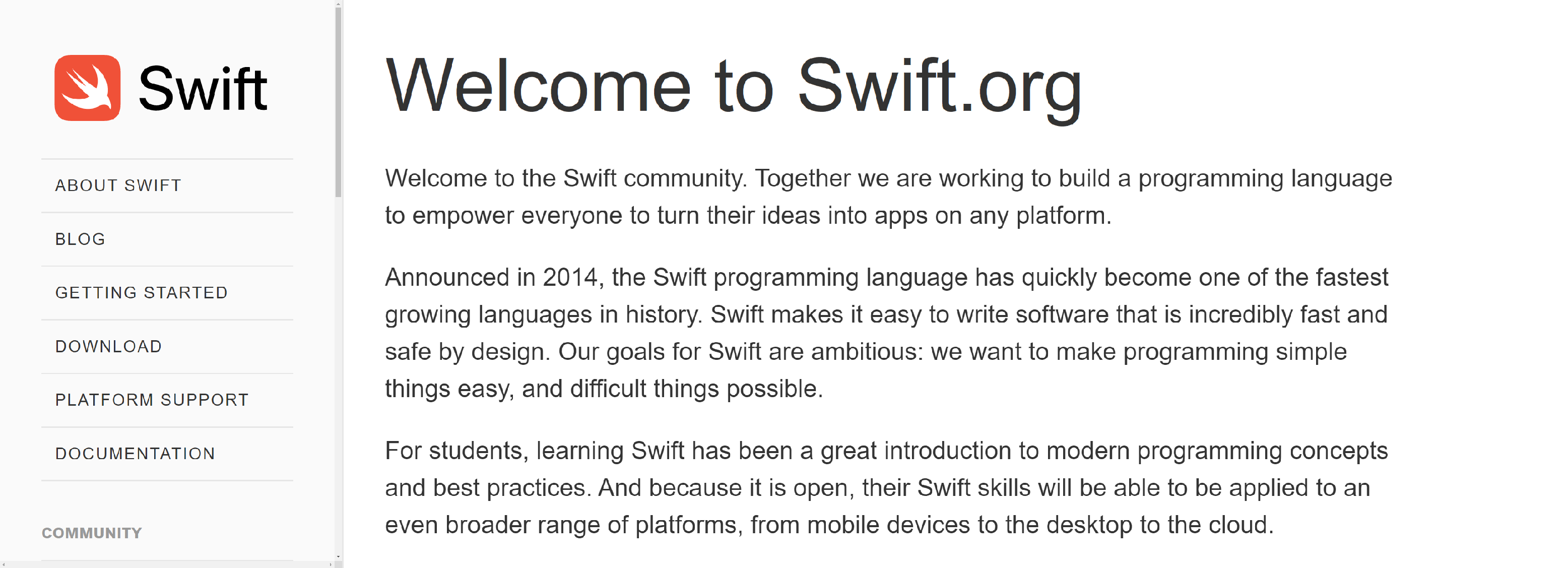
Swift was released in 2014 and ever since, it has become one of the most popular programming languages. It was one of the top rated programming languages on Stack Overflow in 2015. Over 5,00,000 mobile apps leverage Swift to run reliably and smoothly in some form or the other.
Apple created Swift with the initiative that “Anyone Can Code”. Hence, it is one of the most preferred languages for developers who are just getting started. Swift is a primary language for multiple iOS mobile apps including Square, Uber, Lyft, and more more.
You can easily understand and learn Swift. It comes packed with built-in design features that offer real-time feedback to enable developers to write code sans errors. It helps in eliminating meagre tasks to enhance the coding speed with several built-in tools and assists you transmoring complex doe into an optimized syntax.
Developers can also leverage Swift Playgrounds app to help beginner developers with learning Swift coding at a greater pace. It provides a highly interactive and engaging environment to learn coding.
5. Kotlin
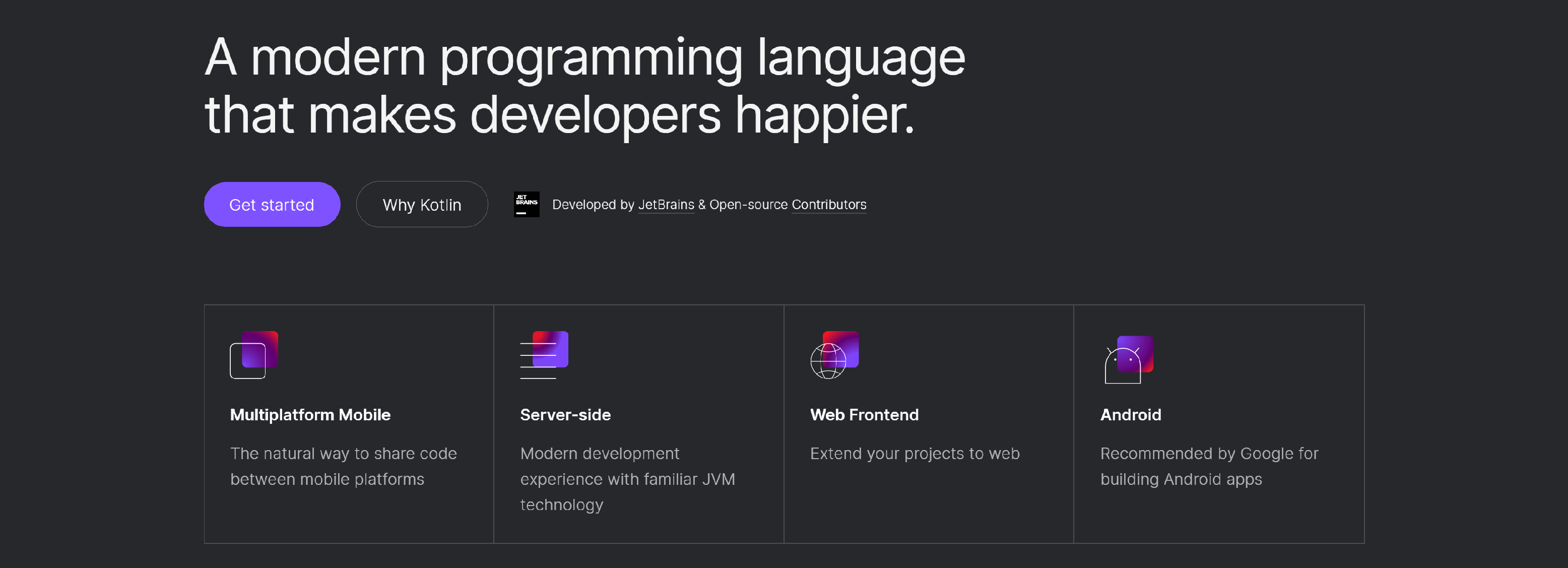
Kotlin offers end-to-end interoperability with Java. It targets JVM majorly however, it can also compile with native code and Java. It is also a preferred programming language for Android app developers by Google. It is also considered 100 percent first class language. It is loved the most for its efficient setup and user-friendliness. It can also support all the major app development environments.
Being completely interoperable with Java means that you develop an app with code written on both Kotlin and Java without affecting performance and user interface of the application. It is one of the cleanest coding languages that you can leverage to develop your mobile application.
Kotline offers easy documentation that is detailed and easily understandable for better learning experience. You can also connect with its thriving community on GitHub and other tech forums if you are new to the world of coding. The Kotlin Slack Group has some of the best developers and helps new developers with their queries.
It also offers Nullability system, Lambdas, built-in Immutability/Mutability system, and Method references among others to meet different expectations of developers.
6. Objective-C
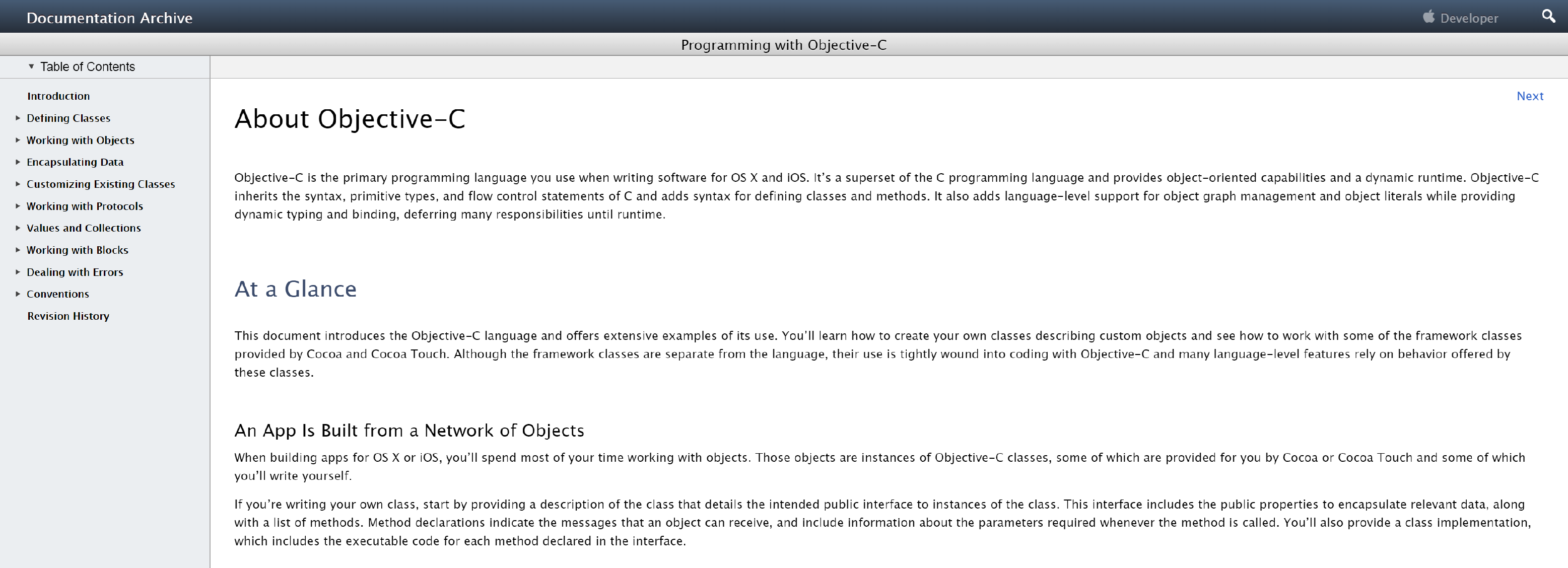
Objective is also called the superset of C. It is one of the oldest programming languages that is compatible reliably with C++ and C codes. It has been in the software development world for around 30 years. However, it is still one of the most preferred choices for iOS development.
The dynamic language enables app developers to select between static typing or dynamic typing. It also helps connect with a private API at a much faster space. Objective-C also brings robust adaptability at runtime to the table. It enables developers to mock objects easily at runtime and access private API for simpler and faster coding. The object oriented language is less error-prone, more stable, and compliant in comparison to other languages.
Wrapping Up
Apart from different capabilities and ease of use, above mentioned programming languages for mobile app development should be picked on the basis of various project requirements. Hence, it is crucial to thoroughly go through the capabilities of each programming language before taking the final decision. Hope this would help you!